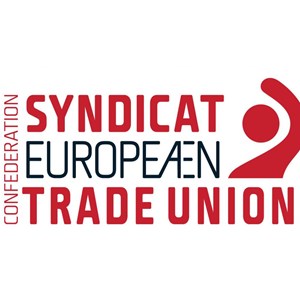NEWS

Bribery, fraudulent activities, harassment, and discrimination are all forms of misconduct that can occur within an organization. In such cases, an investigation needs to be carried out to find out what happened, and potential risks and solutions.

While the legislative process on the proposal for a Regulation laying down harmonised rules on Artificial Intelligence (AI Act) is still ongoing, the European Commission is seeking to speed up the development of standards on AI, with a view to having harmonized standards produced and available by the time the regulation is applicable at the end of 2024/beginning of 2025. To this aim, the Commission issued on 20 May a draft standardization request in support of safe and trustworthy Artificial Intelligence.

On 5 April, the ETUC submitted its reply to the consultation on the proposed amendment to article 10 of Regulation (EU) 1025/2012 on European standardization, which the European Commission had issued as part of the new European Standardization Strategy package on 2 February.

On 18 March, Isabelle Schömann, ETUC’s Confederal Secretary in charge of standardization, was invited to speak at the EESC expert hearing on “The role of standards for the twin transition and the competitiveness of the EU”, to provide the trade unions’ perspective on the recently published new European Strategy on Standardization.

The European Commission issued on 2 February its long-awaited Strategy on Standardization, which was accompanied by a proposal for an amendment to the Regulation on standardization, a report on its implementation, and the 2022 AUWP for European standardization. ETUC welcomes the standardization strategy as it addresses most of the issues we had raised in our contribution to the consultation during the summer.

The ETUC participated in January 2022 in the European Commission’s targeted consultation on ‘Standardization Governance’, which aimed at gathering stakeholders’ views on good governance principles in the European standardization system (ESS).

The EU regulation on European standardization (1025/2012) has certainly contributed to making the European Standardization System more inclusive. However, while at the European level significant efforts have been deployed to facilitate the direct access of societal stakeholders, trade unions still face many challenges when trying to participate at the national level.

The activities aimed at building trade union capacity and at raising awareness about standardization, particularly at national level, are key to the ETUC STANDardisation project. This is a long-term process, which is necessary to increase trade unions mobilisation to act in standardization.

The European Commission invited a wide range of stakeholders to contribute to the roadmap consultation for the forthcoming “Standardization Strategy”. The deadline for feedback was the 9th of August. 138 contributions were submitted, including ETUC’s, and are publicly available here.